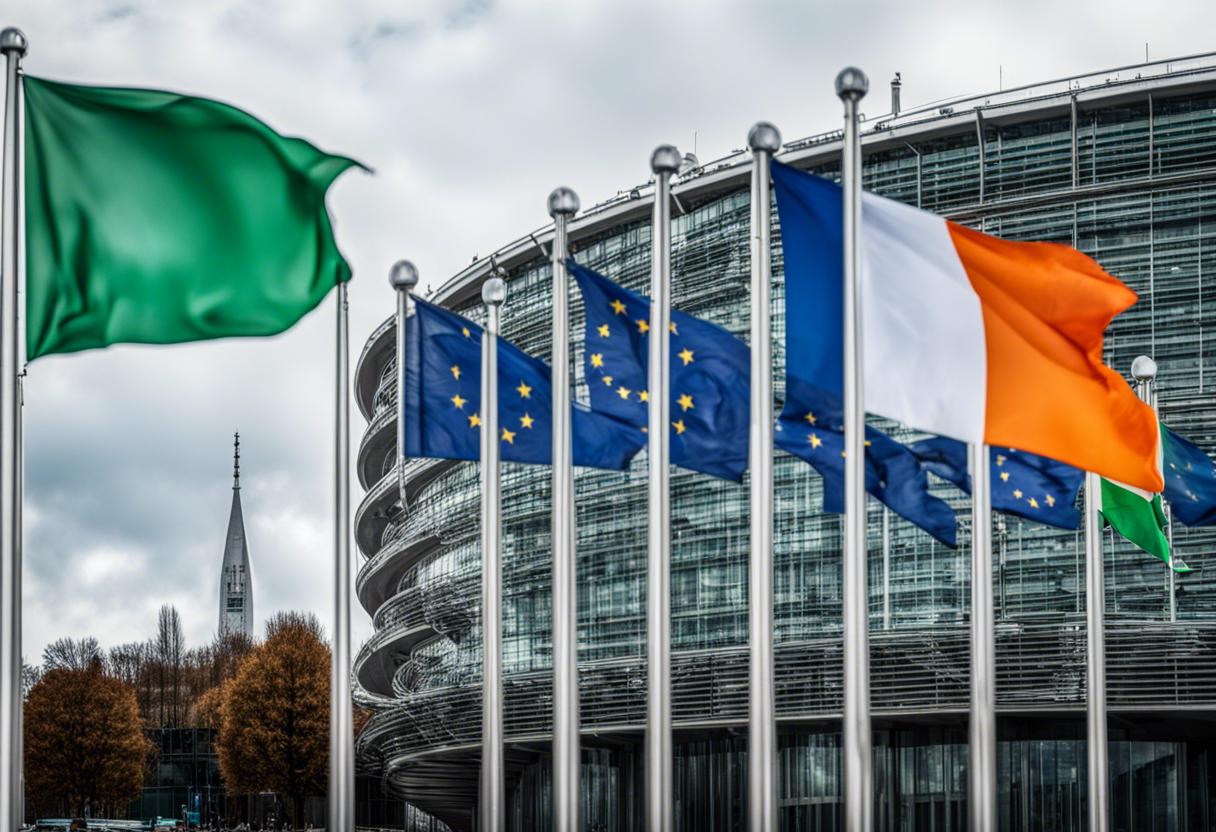This week, Michael McGrath attended Brussels in an attempt to push for a substantial role in the upcoming European Commission. Unfortunately, the likelihood of this has been affected by the choice of the four Fianna Fáil MEPs to vote against Ursula von der Leyen’s reappointment.
The decision of the Fianna Fáil group, comprising Billy Kelleher, Barry Andrews, Barry Cowen, and Cynthia Ní Mhurchú, to publicly declare their opposition to von der Leyen’s second-term candidacy for the post of commission president prior to the secret ballot in the European Parliament, represents a prime example of political folly.
Contrary to the decision of their own liberal group within parliament and despite the Taoiseach Simon Harris and their party leader Micheál Martin’s urging them to vote in favour of the incumbent president’s second term, the MEPs chose to oppose von der Leyen. Prior to the vote, it seemed as if von der Leyen might have trouble getting re-elected, which motivated her to conduct a thorough campaign across various political divides in the European Parliament in order to solicit support.
Recent electoral success for Fianna Fáil and Fine Gael can be attributed to two key elements. All four Fine Gael MEPs declared their support for von der Leyen early on as part of their political affiliation, but there was still uncertainty over if her candidacy would receive support from Fianna Fáil TDs, particularly in what looked like a very close race.
In an attempt to reverse the opposition stance of his MEPs, Taoiseach Micheál Martin was directly contacted by von der Leyen. Notwithstanding the concealed nature of the vote, the MEPs could have at least kept quiet about their intentions. Instead, they chose to reinforce their public pledge to oppose her.
Her triumph was ensured largely by the backing from the Greens, a party not officially in the coalition supporting her, marking a strategic political move as it ensured their priorities remained a key issue on the EU’s agenda. This stands in stark contrast to the Fianna Fáil MEPs approach, who chose to criticise von der Leyen’s remarks supporting Israel in the aftermath of the Hamas massacre last October. Despite the criticism and despite her subsequent more measured comments regarding the Gaza war, the bottom line remained that voting against the Commission President bore no weight on the Middle Eastern conflict, yet it risked compromising Irish national interests.
Von der Leyen made strong efforts to assist Ireland throughout the prolonged Protocol negotiations. Once the UK exited the EU officially, most states focused their attention elsewhere, leaving Ireland’s Protocol implementation issues largely overlooked. However, with support from von der Leyen, Slovak commissioner Maros Sefcovic invested considerable time in negotiating, leading to the Windsor Framework. This revised plan, dramatically revealed by von der Leyen and Rishi Sunak, led to the revival of Stormont a year later.
Despite her efforts, ten of Ireland’s 14 MEPs, including the four from Fianna Fáil, voted against her re-election. The suggestion that von der Leyen will disregard this act and offer McGrath a senior role borders on delusion given that several of Irish MEPs voted against her.
Following the vote, Fianna Fáil’s Cynthia Ní Mhurchú proudly declared her congratulatory remarks to von der Leyen, famously advocating for McGrath. The notion that such shallow flattery would sway the tough German leader demonstrates a stunning blend of ignorance and arrogance, both potentially harmful to McGrath.
It’s unfortunate for McGrath that he may have lost out on a significant role. Von der Leyen’s team was eager to have seasoned, motivated politicians onboard the commission, rather than those in the twilight of their careers or national disgraces who require dispatching to Brussels, and McGrath fit this criterion. Considering his past performance as the finance and public expenditure minister, McGrath potentially had a favourable standing, even though the Dublin government didn’t meet the president’s requirement of proposing two candidates, including a female.
Von der Leyen might have been willing to excuse the lack of a female nominee from Ireland, but with numerous heavyweight states now pushing for an economic portfolio, this provides another reason to assign the Irish representative a less prestigious position. But even so, the hurdles ahead for McGrath don’t stop here. Once the commission is established and the roles assigned, each commissioner has to undergo intensive questioning from the related parliamentary committees in the fall. There’s a tendency among MEPs to flex their political might and reject one or two commissioners, resulting in the concerned nations having to nominate replacements. Thus, McGrath must proceed with caution.

